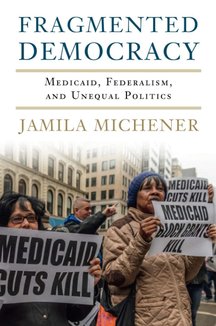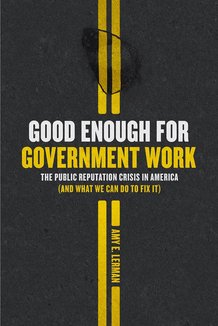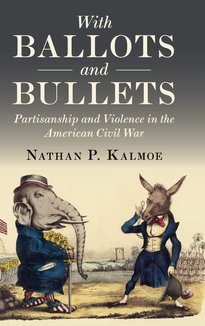Recommended Books

Fragmented Democracy: Medicaid, Federalism, and Unequal Politics
Author:
Jamila Michener
ISBN 13:
978-1316649589
Medicaid is the single largest public health insurer in the United States, covering upwards of 70 million Americans. Crucially, Medicaid is also an intergovernmental program that yokes poverty to federalism: the federal government determines its broad contours, while states have tremendous discretion over how Medicaid is designed and implemented. Where some locales are generous and open handed, others are tight-fisted and punitive. In Fragmented Democracy, Jamila Michener demonstrates the consequences of such disparities for democratic citizenship. Unpacking how federalism transforms Medicaid beneficiaries' interpretations of government and structures their participation in politics, the book examines American democracy from the vantage point(s) of those who are living in or near poverty, (disproportionately) Black or Latino, and reliant on a federated government for vital resources.

Good Enough for Government Work: The Public Reputation Crisis in America (And What We Can Do to Fix It) (Chicago Studies in American Politics)
Author:
Amy E. Lerman
ISBN 13:
978-0226630205
American government is in the midst of a reputation crisis. An overwhelming majority of citizens—Republicans and Democrats alike—hold negative perceptions of the government and believe it is wasteful, inefficient, and doing a generally poor job managing public programs and providing public services. When social problems arise, Americans are therefore skeptical that the government has the ability to respond effectively. It’s a serious problem, argues Amy E. Lerman, and it will not be a simple one to fix. With Good Enough for Government Work , Lerman uses surveys, experiments, and public opinion data to argue persuasively that the reputation of government is itself an impediment to government’s ability to achieve the common good. In addition to improving its efficiency and effectiveness, government therefore has an equally critical task: countering the belief that the public sector is mired in incompetence. Lerman takes readers through the main challenges. Negative perceptions are highly resistant to change, she shows, because we tend to perceive the world in a way that confirms our negative stereotypes of government—even in the face of new information. Those who hold particularly negative perceptions also begin to “opt out” in favor of private alternatives, such as sending their children to private schools, living in gated communities, and refusing to participate in public health insurance programs. When sufficient numbers of people opt out of public services, the result can be a decline in the objective quality of public provision. In this way, citizens’ beliefs about government can quickly become a self-fulfilling prophecy, with consequences for all. Lerman concludes with practical solutions for how the government might improve its reputation and roll back current efforts to eliminate or privatize even some of the most critical public services.

With Ballots and Bullets: Partisanship and Violence in the American Civil War
Author:
Nathan P. Kalmoe
ISBN 13:
978-1108834933
What happens when partisanship is pushed to its extreme? In With Ballots and Bullets, Nathan P. Kalmoe combines historical and political science approaches to provide new insight into the American Civil War and deepen contemporary understandings of mass partisanship. The book reveals the fundamental role of partisanship in shaping the dynamics and legacies of the Civil War, drawing on an original analysis of newspapers and geo-coded data on voting returns and soldier enlistments, as well as retrospective surveys. Kalmoe shows that partisan identities motivated mass violence by ordinary citizens, not extremists, when activated by leaders and legitimated by the state. Similar processes also enabled partisans to rationalize staggering war casualties into predetermined vote choices, shaping durable political habits and memory after the war's end. Findings explain much about nineteenth century American politics, but the book also yields lessons for today, revealing the latent capacity of political leaders to mobilize violence.